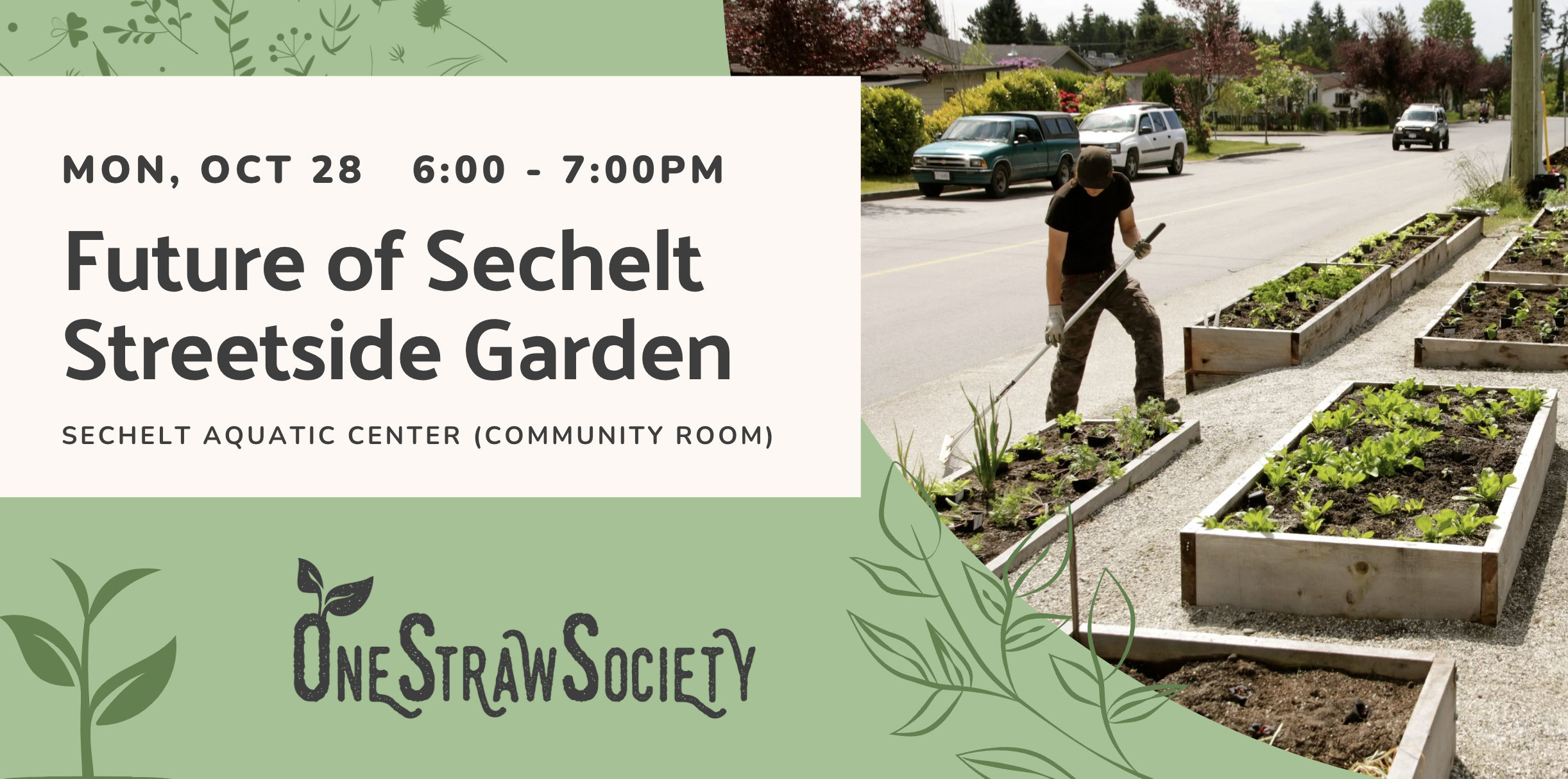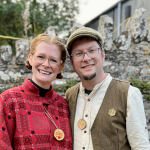The Past & Future of the Sechelt Streetside Garden
Oct 3, 2024
The History
The Sechelt Streetside Garden began as the “Ocean Vegetables Garden” in 2012-2013, a vision of Don Robb, who lived in the neighbourhood. After creating a boulevard garden outside of his house on Mermaid Street, he was inspired by the impact growing food for the public could have. He approached the District of Sechelt and they offered the land on Ocean Avenue for a lease of $1/year to create a community garden. Don then connected with organizations including One Straw Society, Arrowhead Centre, Sunshine Coast Association for Community Living, Sunshine Coast Alternative School, St. Hilda’s Church, and Sechelt Rotary Club, and businesses like Salish Soils, B&K Landscaping, and Vital Signs to get involved.
Chris Hergesheimer coordinated the gardens for the first year while Don’s grandson, Esco Goodwin, created the primary design and led the installation of the first 26 beds. In 2014, Chris moved on to pursue a masters degree and Kym Chi stepped in. She continued to lead the implementation of the second phase of design with 6 more garden beds and the creation of a community Cob Bench led by Amanda-Rae Hergesheimer and a team of amazing natural builders.
Don Robb passed away in the summer of 2015.

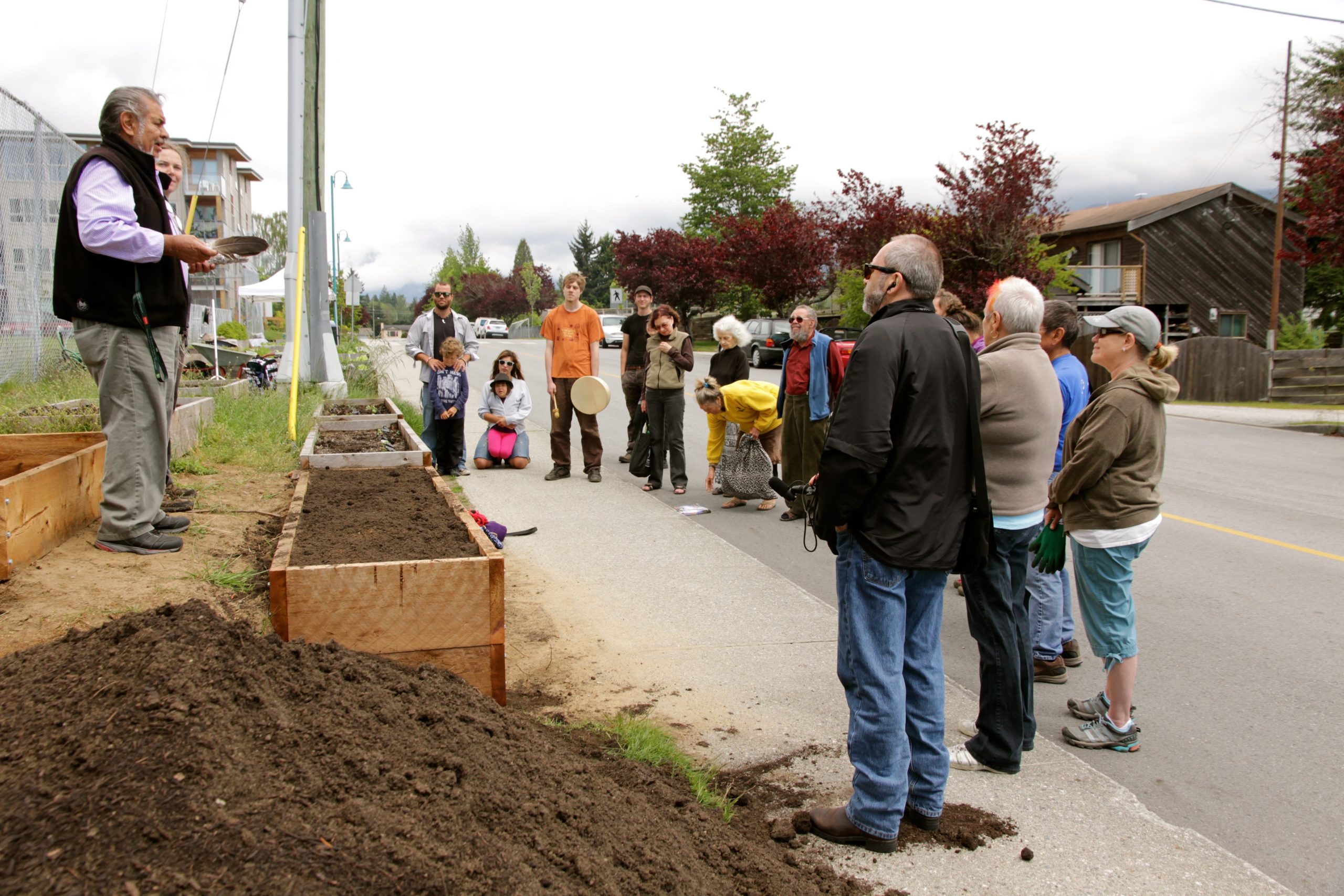
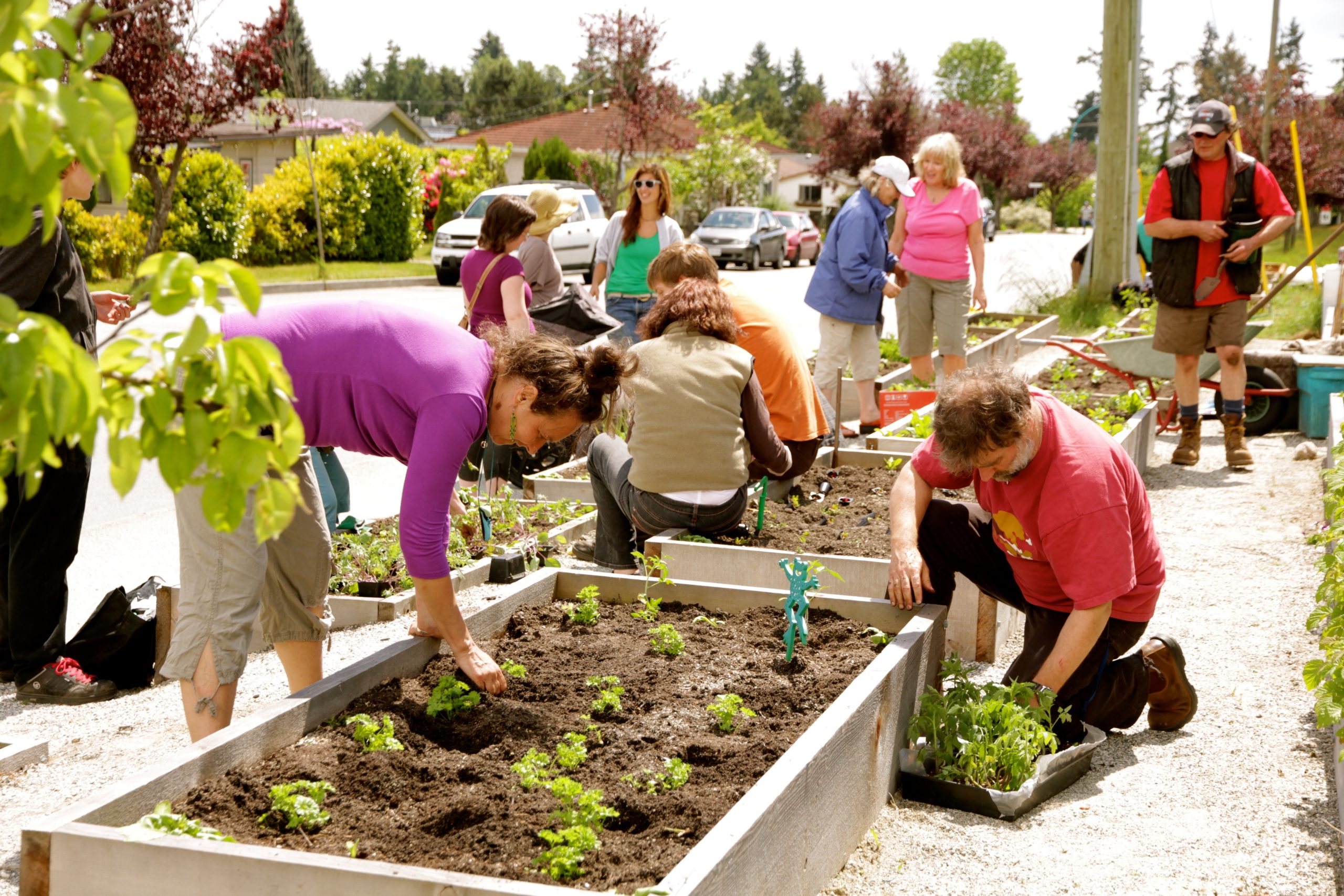
That same year, the gardens continued with an additional 6 garden boxes donated by the Sechelt Rotary Club. Laura Walker joined the coordinator team and a vision for a Food Forest was created. Since then, many wonderful volunteers and summer students have come and gone, and the gardens have experienced beautiful days with bursts of community energy, and sad days of neglect.
It was freshened up in 2021-2022 under the care of Caitlin Allenby along with 4 or 5 regular volunteers, who planted the Butterfly Way pollinator rows, and we renamed it “Sechelt Streetside Garden”. Financial support came from the District of Sechelt, Rotary Club, Sunshine Coast Credit Union, and Vancouver Coastal Health. Seeds and plants came from Kym’s Plants, Ruby’s Run, the Seed Saving Collective, Quality Garden & Pet, and Fleur Microfarm.
People in the neighbourhood love to chat to the gardeners, admire the plantings, harvest food, ask questions, and give advice.

The Challenges
The garden was built as a grassroots community project, and without Don as its champion, One Straw adopted the lead role, but the garden has been a challenge to keep up with for the past 9 years.
Year after year, the garden faces increasing challenges, and many have worked tirelessly to address:
- No funding, leading to an endless cycle of fundraising and grant-writing – funders mostly uninterested in just maintaining a roadside garden
- No volunteer leader and no funding means an inability to recruit, lead, coordinate and support volunteer gardeners
- Low volunteerism. Most volunteers do 1-3 shifts, but don’t continue.
- Worsening annual droughts and water restrictions – everything dies
- No electricity onsite – to run irrigation pumps from tanks
- Vandalism & mess – significant increase in the past few years – hoses cut, feces, garbage and sharps in the beds
- Theft – whole plants dug up, hoses, splitters and irrigation lines missing, and entire crops of garlic disappearing overnight
- Unable to protect the space with fencing (DoS rules)
- Unable to build storage sheds, shade structures or other structures over 4′ tall (DoS rules)
- Free-to-harvest model leaves no reward for those that put in the work – tough to keep community engaged.
- Grasses and edging around beds difficult for us to maintain (we use borrowed weedeaters), and DoS doesn’t maintain it.
- After more than a decade, most of the beds need repairs or replacement.
We’ve written grants, sought donations, held onsite workshops, assigned Canada Summer Jobs youth positions to the gardens, partnered with the amazing Rotary volunteers, and we’ve connected with local schools, organizations and businesses to see about who else may want to partner in or take over the gardens.
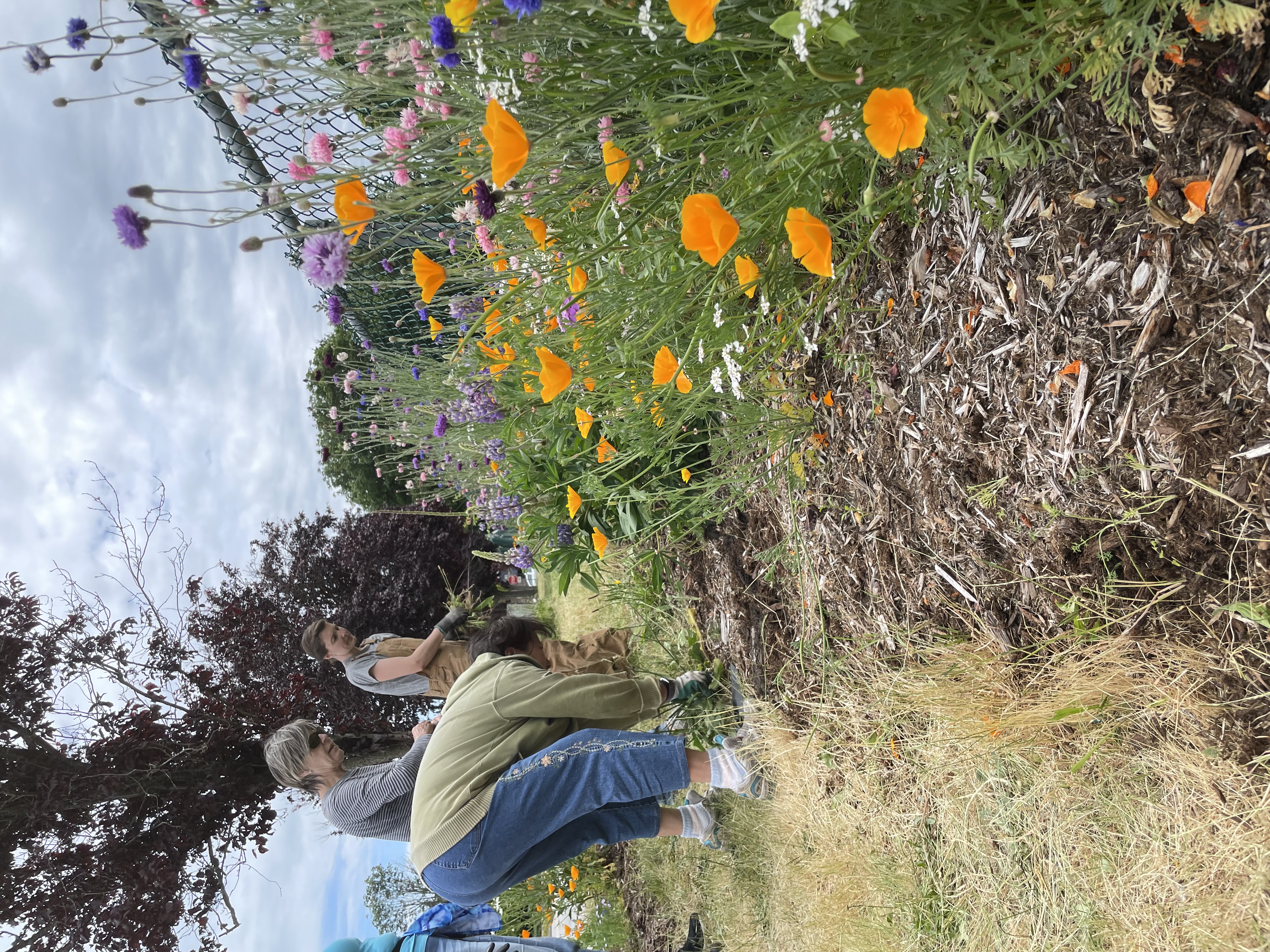

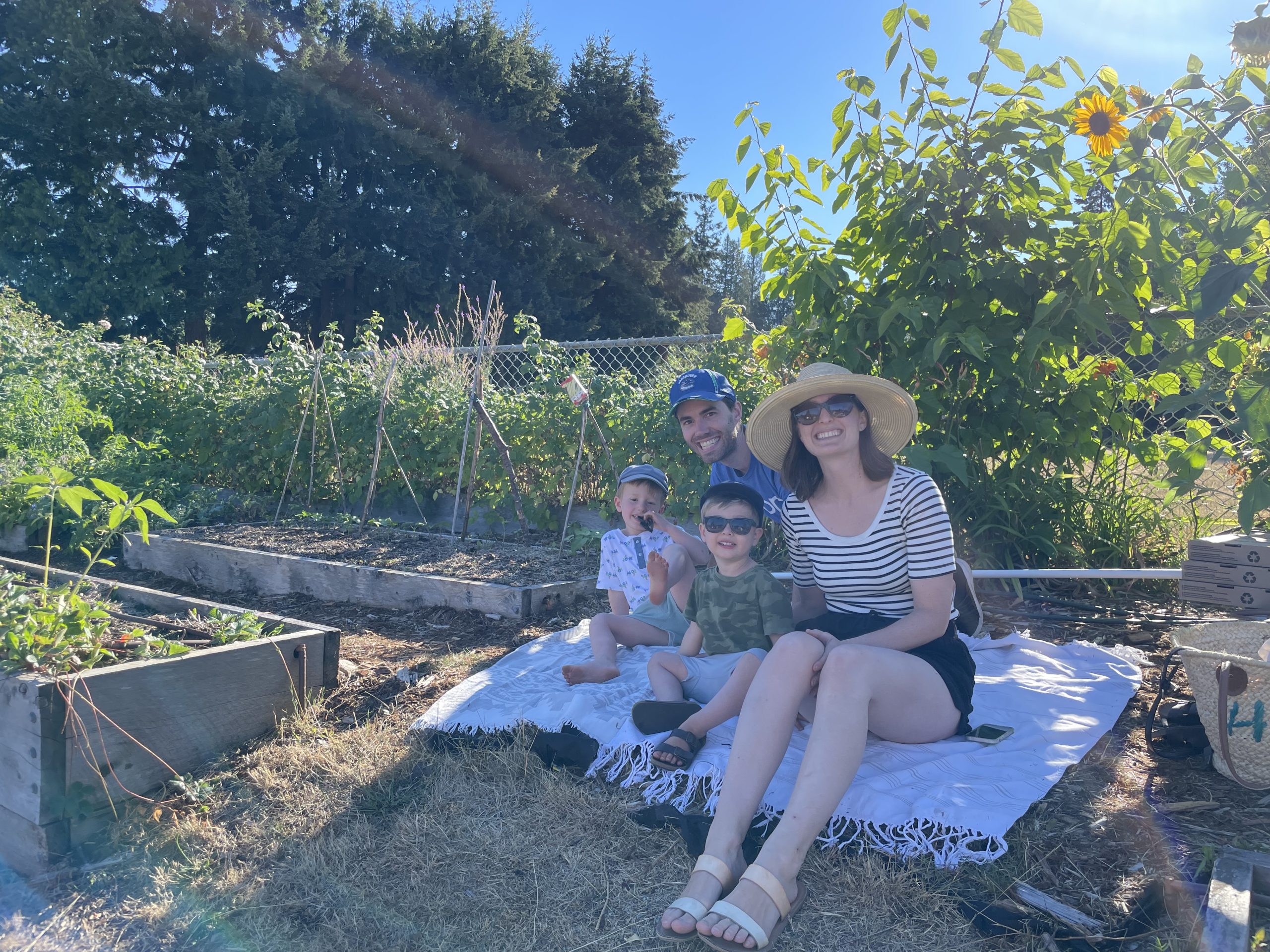
What’s Next?
We’ve taken a deep dive into what this space provides (and does not / can not), and what kind of space might better support our mission. We no longer have the capacity to continue to seek out funding every year to support this garden as it is. Before we decide, we want to explore options with you, which may include:
- removing some beds, but keeping the location (good exposure for signage & education), and just
- grow low maintenance perennial bushes only, or
- grow only pollinators / flowers, or
- grow only drought-tolerant plantings
- planning for a different Sechelt location, with a classic, fenced community garden with plots owned by community members, where we can provide security (fencing), locking storage, dedicated garden plots and lighting to deter vandalism.
- installing benches to gather/rest/chat, but slowly decommission all food-growing efforts here.
- shutting it down completely, removing all signage & garden beds, returning the space to the District of Sechelt to maintain.
- your connections for a new partner, champion or annual funding
- other ideas?
Community Conversation
Please come share your thoughts! Open invitation to you and anyone else you think may be interested in talking:
6:00 – 7:00 pm October 28, 2024
Sechelt Aquatic Center (community room)


